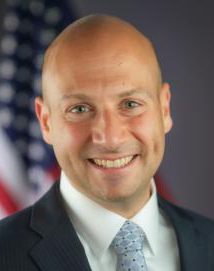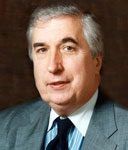Securities and Exchange Commission
Skadden Discusses Proposed SEC Amendments to Auditor Independence Rules
On December 30, 2019, the Securities and Exchange Commission (SEC) announced proposed amendments to its auditor independence requirements. Comments on the proposed amendments will be due 60 days after publication in the federal register, meaning comments likely will be due …
Sullivan & Cromwell Discusses Key Considerations for Fiscal-Year 2019 SEC Filings
As issuers prepare their Form 10-K and 20-F filings for fiscal year 2019, they should consider recent changes to Securities and Exchange Commission (“SEC”) disclosure rules, trending disclosure topics and the implementation of critical audit matters disclosure in the audit …

SEC Chair Clayton Addresses Proposed Order on Access to Equity Market Data
Good morning. This is an open meeting of the U.S. Securities and Exchange Commission on January 8, 2020, under the Government in the Sunshine Act. The Commission today will consider a staff recommendation to issue for public comment a Proposed

SEC Commissioner Jackson Issues Statement on Reforming Stock Exchange Governance
Thank you as always to our dedicated Staff, especially Christian Sabella, David Shillman, Deborah Flynn, John Roeser, and Jennifer Colihan, for their extensive work on today’s proposed order. I’m also deeply grateful to Division Director Brett Redfearn, whose leadership in …

SEC Commissioner Lee on Proposed Order for Equity Market Data Plans
I want to start by thanking Chairman Clayton, Director Redfearn, and our dedicated staff for their work over the past couple of years to address some of the more complex and conflicted areas of equity market structure such as the …

SEC Commissioner Roisman Addresses Proposed Order on Equity Market Data Plans
Today, the Commission considers steps to change the governance of equity market data plans under Regulation National Market System (“NMS”) (the “Proposed Order”). The Proposed Order seeks to modernize governance of the Securities Information Processors, or “SIPs,” by providing a

The Effects of Mandatory Disclosure Rules on Hedge Fund Governance
In a new paper, I add to the debate over hedge fund regulation by introducing empirical evidence that hedge fund registration requirements reduce misreporting. Using three alternating changes in hedge fund regulation, my study finds consistent evidence that registration reduces …
Davis Polk Discusses NYSE Revised Direct Listing Proposal
Following the SEC’s rejection last week of its proposed rule change on direct listings, the NYSE filed a revised rule change proposal with the SEC yesterday. The new rule change proposal is substantially similar to the proposal the NYSE filed …
SEC Commissioner Peirce Speaks before National Economists Club
Thank you, Cliff [Waldman] for that kind introduction. It is an honor to be among economists today. I am not sure why, but every time I speak to economists, I feel compelled to tell a joke. Maybe it is because
SEC Chair Delivers Testimony on Oversight to U.S. Senate Banking, Housing, and Urban Affairs Committee
Chairman Crapo, Ranking Member Brown and Senators of the Committee, thank you for the opportunity to testify before you today about the work of the U.S. Securities and Exchange Commission (SEC or Commission or agency).[1] I am honored to
SEC Commissioner Speaks on Protecting Elder Investors
Good morning. I am truly happy to join you today at the fall 2019 meeting of the Elder Justice Coordinating Council (“EJCC”). I want to thank U.S. Department of Health and Human Services Secretary [Alex] Azar, Assistant Secretary [Lance] Robertson,
Does Litigation Risk Make Financial Reports Less Readable?
Financial reports can be opaque, complex, and difficult to understand. As far back as 1998, this was the premise behind the SEC’s Plain English Rule: an unsuccessful attempt to encourage firms to write more readable financial reports. In a new …
Sullivan & Cromwell Discusses NYSE Proposal to Expand Permitted Use of Direct Listings
On November 26, 2019, New York Stock Exchange LLC (“NYSE”) filed notice of a proposed rule change with the Securities and Exchange Commission to modify its listing rules relating to direct listings. The proposed rule change would allow companies to …
SEC’s Director of Investment Management Division Talks Securities Law Developments
I recently came across a September Compliance Minute Podcast, titled: Where Have you Gone, Dalia Blass?
SEC Commissioners Jackson and Lee on Proposed Rules for Funds’ Use of Derivatives
SEC Commissioners Peirce and Roisman on Proposed Rules for Funds’ Use of Derivatives
We thank the staff of the Division of Investment Management (the “Division”) for undertaking the challenging task of devising and presenting for Commission vote a proposal to modernize the way we regulate the use of derivatives in investment funds’ portfolios.



Spinning the CEO Pay Ratio Disclosure
The growing compensation gap between CEOs and rank-and-file employees has generated considerable debate about potential adverse consequences at both the firm and societal levels. Despite interest in the topic, assessing vertical pay disparity has been difficult due to the lack …
Debevoise & Plimpton Discusses SEC’s Proposed Changes to Advertising Rule
On November 4, the Securities and Exchange Commission (the “SEC”) proposed amendments (the “Proposal”) to modernize Rule 206(4)-1 (the “Advertising Rule”) under the Investment Advisers Act of 1940 (the “Advisers Act”). [1] The first substantial amendment to the Advertising Rule …


Blue Sky Banter Podcast: Coffee and Jackson on the Latest at the SEC
Professor John C. Coffee, Jr., of Columbia Law School and Commissioner Robert J. Jackson, Jr., of the U.S. Securities and Exchange Commission discuss proxy solicitation rules, short-selling issues, and other hot topics of debate at the SEC.
[soundcloud url=”https://api.soundcloud.com/tracks/714133174?secret_token=s-kYr94″ params=”color=#ff5500&auto_play=false&hide_related=false&show_comments=true&show_user=true&show_reposts=false&show_teaser=true&visual=true” …
 Sky Blog
Sky Blog